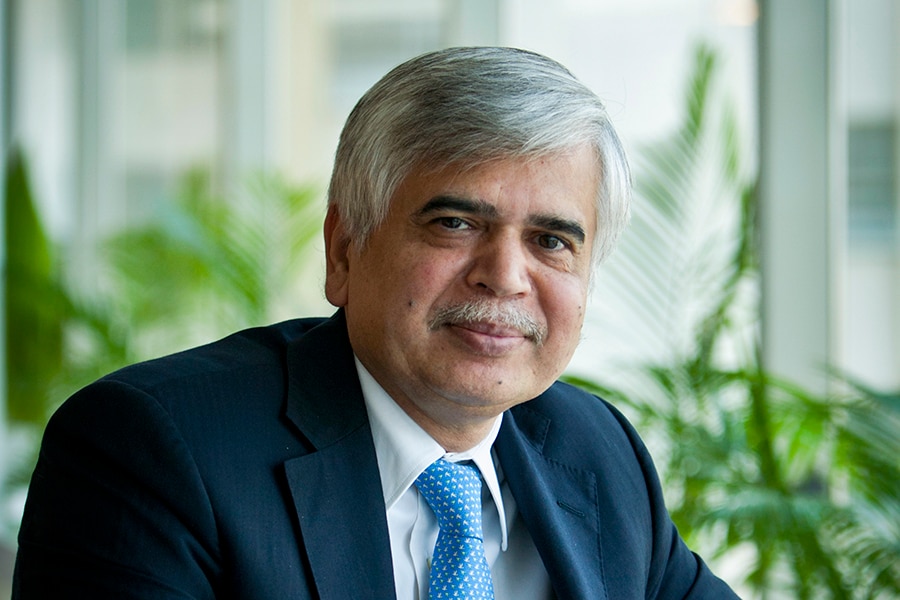ESG now is no longer a fad, and definitely here to stay. It will disrupt business models, and the boards that lead and direct organisations with the right direction will ensure the success of companies into the future.
Significant awareness in ESG has in the recent past happened primarily because of the impact on the environment. Global warming, climate change, the fire outbreak and floods are real. The recent floods in Germany have awakened people. ESG is clearly here to stay.
Climate change is a physical shock. The recent calamities have fast-paced the trust stakeholders have on ESG. Whether it is the government, investors, employees, vendors, contractors, suppliers or community at large, they will hold the corporates more responsible on ESG parameters going forward.
Countries are forced to reflect on what really matters to them. Major institutional investors recognise this and are making it clear that they expect the companies they invest in to take a proactive approach to ESG policies and implementation. Sustainable and impact investing are becoming the order of the day. Investors have become more attentive to environment and social issues related to a company’s operations.
Over the past couple of years, there has been a lot of emphasis on purpose-driven leadership. Should the market cap be the only yardstick to judge leaders?
Business leaders today will not be judged by market capitalisation or share value but by the impact they have on society. To survive and excel in today’s volatile environment, the tenets of good and purpose-led leadership are needed more than any other time. In my view, a way to go about this is ‘higher purpose’. What this means is simple: While higher purpose is your capital account, your job and salary are your current account.
High-growth companies are led by people who are determined to make a positive difference in others’ lives. They understand that it is both a moral obligation and in the self-interest of the business to share values and build long-term sustainable relationships even if they feel they are losing in the near term.
Don’t you think we need to relook at the way ESG is measured?
ESG is measured and reported qualitatively, not quantitatively. However, with the help of tools like artificial intelligence and blockchain, we will be able to measure the carbon footprint of different organisations. One will also see many ratings agencies coming up which will rate companies on ESG implementation and statements. Investors don’t just want to hear that your business is committed to ESG. They need to see that you are actively invested and are measuring outcomes. Moving towards a circular economy will be the new normal.
ESG is not only about environment it also covers crucial aspects such as social, LGBTQ, age discrimination, working conditions, wages and drinking water. These are serious issues and are entering boardroom discussions. These deep-seated, systemic issues have been bubbling under the surface, and when mixed with a global pandemic, they created a domino effect. Governance is about the policies of the government as well as the companies with respect to governing the country or the organisations. When a company’s goals and priorities are balanced across people, planet, and profit, the organisation is capable of achieving its ESG goals.
But this level of change cannot be done by any one person, business or government. It’s going to take everyone’s participation, which is why it is so important to have the right people at the table. It is just not about implementing the strategy but also about having tangible outcomes which can be measured from time to time.
Businesses are today reimagining the future of work. Inclusivity is taking centre stage. How can inclusivity help foster productivity at work?
In today’s fast-paced world, the success of companies will largely depend on how inclusive they are in their existence, structure and operations. Whether they have people with new ideas, from diverse backgrounds, will be crucial to these efforts. Companies with a culture based on trust, collaboration, and inclusion—in which all employees feel comfortable speaking up—are those where the best ideas emerge.
It is evident that socioeconomic inequities exist beyond the paycheque. The tone for the inclusive culture has to be set and driven by the top leadership. They need to champion commitment and compassion for building inclusive culture and be cognisant of biases and blind spots.
The DNA of organisations is getting flipped because the millennial workforce is vastly different from what we had 20 years ago. Employers are stepping up their game to compete and win valued talent. And hence it’s crucial for companies to actively recruit a wider range of employees. They need to aim at larger recruitment pools, widen their candidate search, with a broader range of skills in their workforce, and more language and cultural awareness within their businesses. It is also important to have as diverse a panel of interviewers as possible which will make diverse candidates more comfortable as well as demonstrate that their business is inclusive and welcoming.
The HR needs to ensure that inclusivity is not just promoted at the time of recruitment but also at the time of promotion, leadership pipeline and having a balanced seat in the boardroom.
Intense focus on ESG issues has catapulted corporate governance to the top of financial agenda. Your comments.
How companies have included their sustainability agenda and priorities into their overall corporate structure will decide their future direction. Every company must tailor its approach for what makes most sense given its business model, structure, resources, and level of sustainability integration into the business.
The big capital markets players have an opportunity to help improve it by addressing gaps that exist on some boards today, including lack of proper engagement, diversity and action. With the rising importance of ESG, today we are on the cusp of an era of world-class corporate governance.

 Richard Rekhy, former CEO, KPMG India[br]
Richard Rekhy, former CEO, KPMG India[br]